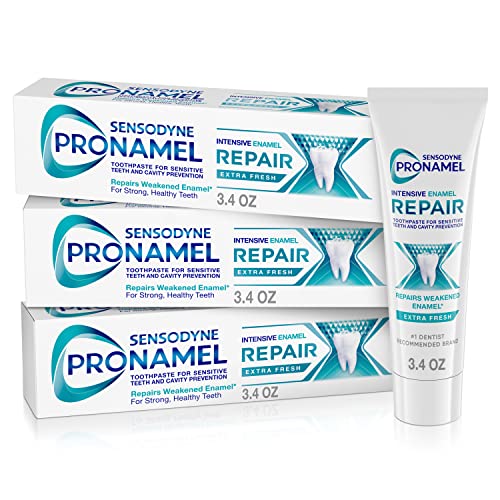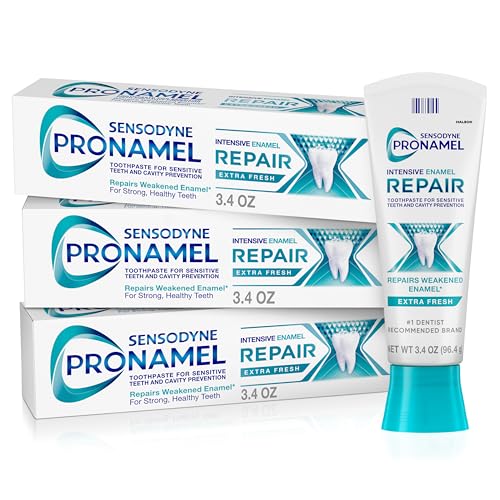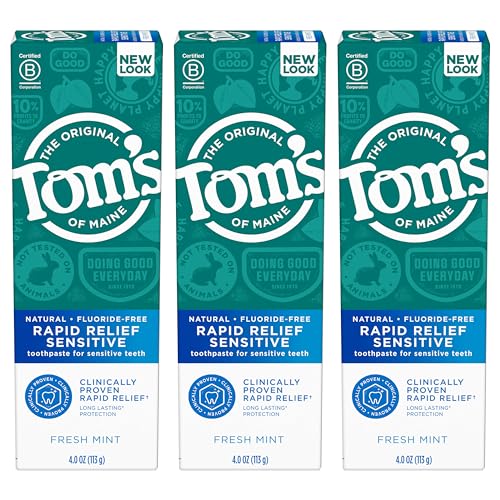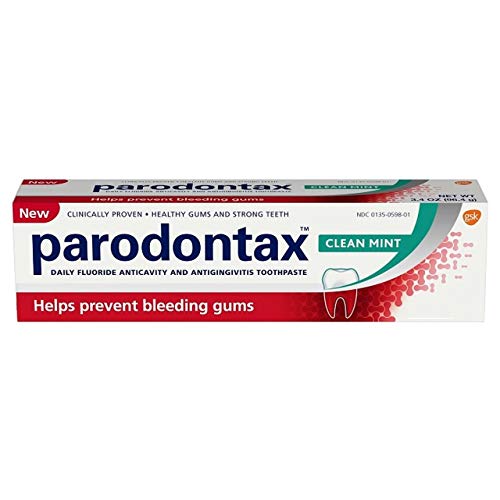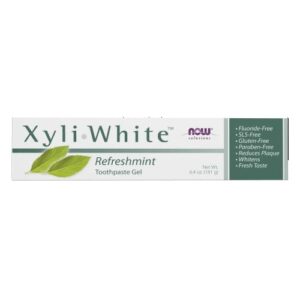Are you tired of wincing in pain every time you take a sip of hot coffee or indulge in a scoop of ice cream? We understand the frustration and discomfort that comes with tooth sensitivity. That’s why we’re here to shed light on a solution that could potentially bring some relief to your sensitive teeth. In this blog post, we will be exploring the wonderful world of sensitive toothpaste and how it works to alleviate tooth sensitivity. So, sit back, relax, and let us guide you through the science behind this dental innovation.
Gentle Relief for Sensitive Smiles
Understanding Tooth Sensitivity
Tooth sensitivity can be a frustrating and uncomfortable dental issue that affects many people. If you’ve ever experienced a sharp pain or discomfort when consuming hot or cold foods or beverages, you may be familiar with this condition. In this blog section, we will delve into what tooth sensitivity is, why it occurs, and the various factors that contribute to its development. By gaining a better understanding of tooth sensitivity, you can take steps to manage and prevent it, ultimately improving your overall dental health.
What is Tooth Sensitivity?
Tooth sensitivity, also known as dentin hypersensitivity, is a condition where the nerves within the teeth become more responsive to certain stimuli. This can result in sharp, sudden pain or discomfort when consuming hot, cold, sweet, or acidic foods and drinks, or even when breathing cold air. The pain is often described as a brief, shooting sensation that subsides once the stimulus is removed.
Factors Contributing to Tooth Sensitivity
Tooth sensitivity can be caused by various factors, including:
Enamel Wear
Enamel is the hard outer layer that protects the underlying dentin and tooth pulp. When the enamel becomes worn down due to aggressive brushing, teeth grinding, or acidic foods and beverages, the dentin becomes exposed. Since dentin contains tiny tubules that lead to the nerves of the tooth, this exposure can lead to heightened sensitivity.
Gum Recession
Gum recession occurs when the gum tissue surrounding the teeth starts to pull back, exposing the roots of the teeth. The roots do not have the same protective layer of enamel as the crowns, making them more susceptible to sensitivity. Gum recession can be caused by factors such as gum disease, brushing too hard, or genetics.
Tooth Decay
Tooth decay, or cavities, can also contribute to tooth sensitivity. When a tooth is decayed, the protective enamel layer becomes compromised, leading to exposure of the dentin and potential sensitivity.
Other Factors
In addition to the above, there are other factors that can contribute to tooth sensitivity:
- Cracked or chipped teeth: These can expose the dentin and lead to sensitivity.
- Dental procedures: Teeth may become temporarily sensitive after certain dental treatments, such as fillings or professional cleanings.
- Tooth whitening: Some individuals may experience temporary sensitivity following tooth whitening procedures.
Managing and Preventing Tooth Sensitivity
While tooth sensitivity can be bothersome, there are steps you can take to manage and prevent it. Here are some tips:
- Use a soft-bristled toothbrush and a gentle brushing technique to avoid further enamel wear.
- Use toothpaste specifically designed for sensitive teeth, which can help reduce sensitivity over time.
- Avoid consuming excessively hot or cold foods and drinks.
- Limit your intake of acidic foods and beverages, such as citrus fruits and carbonated drinks.
- Consider using a mouthguard if you grind your teeth at night.
- Maintain good oral hygiene practices, including regular brushing and flossing, to prevent tooth decay and gum disease.
By following these recommendations, you can alleviate tooth sensitivity and improve your overall dental health.
In conclusion, tooth sensitivity is a common dental condition that can be caused by factors such as enamel wear, gum recession, and tooth decay. Understanding the underlying causes of tooth sensitivity is the first step towards managing and preventing it. By taking proactive measures and implementing good oral hygiene practices, you can minimize tooth sensitivity and enjoy a pain-free smile.
How Does Sensitive Toothpaste Work?
Tooth sensitivity can be a real pain, quite literally. If you’ve ever experienced that sharp, electric sensation when eating or drinking something hot, cold, sweet, or acidic, you know just how uncomfortable it can be. But fear not, because sensitive toothpaste is here to save the day! In this blog section, we’ll delve into how sensitive toothpaste works to relieve tooth sensitivity and bring you much-needed relief.
Key Ingredients in Sensitive Toothpaste
Sensitive toothpaste contains specific ingredients that target tooth sensitivity and help alleviate the pain associated with it. Let’s take a closer look at the most common key ingredients found in sensitive toothpaste:
1. Potassium Nitrate
Potassium nitrate is a mineral compound that plays a vital role in reducing tooth sensitivity. This ingredient works by blocking the transmission of pain signals from the nerve endings in your teeth to your brain. By doing so, it helps to minimize the discomfort caused by hot, cold, or acidic substances.
2. Fluoride
Fluoride is a well-known ingredient in dental care, and it also plays a crucial role in sensitive toothpaste. Not only does fluoride help to prevent tooth decay and strengthen enamel, but it also aids in reducing tooth sensitivity. By remineralizing the enamel and making it more resistant to acids, fluoride helps protect your teeth from the triggers that cause sensitivity.
3. Desensitizing Agents
Sensitive toothpaste often contains additional desensitizing agents that work in tandem with potassium nitrate and fluoride. These agents, such as strontium chloride or arginine, help to block the exposed dentinal tubules on your teeth. Dentinal tubules are tiny pathways that connect the nerves inside your teeth to the outer surface, and when they become exposed, they can cause sensitivity. Desensitizing agents help seal these tubules, reducing the transmission of pain signals and providing relief.
Mechanisms Behind the Ingredients
Now that we’ve covered the key ingredients, let’s explore how they work to provide relief from tooth sensitivity:
Blocking Pain Signals
Potassium nitrate and desensitizing agents work together to block the transmission of pain signals from the nerves in your teeth. By interrupting these signals, they prevent your brain from registering the pain when you consume hot, cold, sweet, or acidic foods and drinks.
Strengthening Tooth Enamel
Fluoride plays a crucial role in strengthening tooth enamel, which is the protective outer layer of your teeth. It helps to remineralize any weak spots in the enamel, making it more resistant to erosion and reducing sensitivity. By strengthening the enamel, fluoride also helps to protect against tooth decay, which can exacerbate sensitivity.
Benefits of Sensitive Toothpaste
Sensitive toothpaste offers several benefits beyond simply relieving tooth sensitivity. Here are a few key points to consider:
- Provides targeted relief for tooth sensitivity caused by hot, cold, sweet, or acidic substances.
- Helps strengthen tooth enamel, making it more resistant to erosion and decay.
- Can improve overall oral health by preventing tooth decay and gum disease.
- Promotes a more comfortable eating and drinking experience, allowing you to enjoy your favorite foods without pain.
In conclusion, sensitive toothpaste works by utilizing key ingredients such as potassium nitrate, fluoride, and desensitizing agents to alleviate tooth sensitivity. By blocking pain signals and strengthening tooth enamel, sensitive toothpaste provides targeted relief and improves your overall oral health. So, if you’ve been struggling with tooth sensitivity, it’s time to give sensitive toothpaste a try and experience the relief you deserve.
Suggested bullet points to explain important details or benefits or key points:
- Potassium nitrate blocks pain signals from reaching the brain.
- Fluoride strengthens tooth enamel and reduces sensitivity triggers.
- Desensitizing agents seal exposed dentinal tubules, reducing pain transmission.
- Sensitive toothpaste provides targeted relief for sensitivity caused by hot, cold, sweet, or acidic substances.
- It strengthens tooth enamel, preventing erosion and decay.
- Sensitive toothpaste improves overall oral health by preventing tooth decay and gum disease.
- It allows for a more enjoyable eating and drinking experience.
Choosing the Right Sensitive Toothpaste
Dealing with sensitive teeth can be a real pain, quite literally. The sharp twinge of pain that shoots through your tooth when you indulge in a hot cup of coffee or an icy cold popsicle is something nobody wants to experience. Thankfully, sensitive toothpaste can offer some relief by reducing tooth sensitivity and providing protection for your teeth. In this blog section, we will guide you through the process of choosing the right sensitive toothpaste for your needs.
Factors to Consider
When selecting a sensitive toothpaste, there are a few important factors to consider:. Level of Sensitivity”} –>
1. Level of Sensitivity
Not all sensitive toothpastes are created equal. Some are formulated for mild sensitivity, while others are designed for more severe cases. Consider the level of sensitivity you experience and choose a toothpaste that specifically addresses your needs.
2. Additional Oral Health Benefits
Sensitive toothpaste often comes with additional oral health benefits, such as cavity prevention, enamel strengthening, or gum care. Determine which additional benefits are important to you and look for a toothpaste that offers them.
3. Personal Preferences
Everyone has different preferences when it comes to toothpaste. Some may prefer a minty fresh taste, while others may prefer a more subtle flavor. Consider your personal preferences and choose a toothpaste that you enjoy using.
Considerations for Specific Dental Conditions or Allergies
If you have specific dental conditions or allergies, it’s important to take them into account when choosing a sensitive toothpaste. Here are a few considerations:
1. Gum Disease
If you have gum disease, it’s crucial to choose a sensitive toothpaste that also provides gum care benefits. Look for a toothpaste that helps reduce inflammation and promotes gum health.
2. Tooth Decay
If you are prone to tooth decay, select a sensitive toothpaste that offers cavity prevention. These toothpastes often contain fluoride, which helps strengthen the enamel and protect against cavities.
3. Allergies
If you have allergies, carefully read the ingredient list of the toothpaste you are considering. Avoid any toothpaste that contains ingredients you are allergic to. Opt for hypoallergenic or natural toothpaste options if you have sensitive allergies.
Comparison Table: Key Points and Benefits
To make it easier for you to compare different sensitive toothpaste options, here is a comparison table highlighting the key points and benefits:
| Toothpaste Brand | Level of Sensitivity | Additional Benefits | Personal Preferences |
|---|---|---|---|
| Brand A | Mild to Moderate | Cavity prevention, Fresh mint flavor | Dye-free, Gentle formula |
| Brand B | Severe | Gum care, Enamel strengthening | Natural flavor, Gluten-free |
| Brand C | Moderate | Whitening, Tartar control | Refreshing flavor, Alcohol-free |
Remember, this table is just a general guideline, and your specific needs may require a different toothpaste. Always consult with your dentist for personalized recommendations.
Tips for Using Sensitive Toothpaste
Sensitive teeth can be a real pain, quite literally. Whether it’s the sharp twinge of discomfort when you bite into something cold or the dull ache that lingers throughout the day, tooth sensitivity can greatly impact your quality of life. Thankfully, sensitive toothpaste can help provide relief and protect your teeth from further damage. In this blog section, we will offer practical tips on how to effectively use sensitive toothpaste for optimal results. Let’s dive in!
Proper Brushing Techniques
Using sensitive toothpaste correctly can make a significant difference in your overall oral health. Here are a few tips to keep in mind:
- Use a soft-bristled toothbrush: Using a toothbrush with soft bristles will be gentler on your sensitive teeth and gums, reducing the risk of further irritation.
- Brush gently: Apply only light pressure while brushing to avoid aggravating sensitive areas. Remember, it’s about thoroughness, not force.
- Brush in circular motions: Instead of scrubbing back and forth, use small circular motions to effectively clean your teeth and gums without causing discomfort.
- Pay attention to your technique: Ensure you’re reaching all areas of your mouth, including the gumline and hard-to-reach spots, to maintain overall oral hygiene.
Frequency of Use
Sensitive toothpaste is formulated to provide ongoing relief when used regularly. However, it’s essential to strike a balance to avoid potential side effects. Here’s what you need to know:
- Follow the instructions: Different sensitive toothpaste brands may have varying usage recommendations. Consult the packaging or talk to your dentist to determine the proper frequency of use for your specific toothpaste.
- Start slow: If you’re new to using sensitive toothpaste, start by using it once a day and gradually increase the frequency as needed. This allows your teeth and gums to adjust to the formula.
- Don’t overdo it: While it may be tempting to use sensitive toothpaste multiple times a day to alleviate discomfort, excessive use can lead to tooth enamel erosion. Stick to the recommended frequency for long-term benefits.
Potential Side Effects
As with any oral care product, sensitive toothpaste may have potential side effects. Although rare, it’s essential to be aware of these possibilities:
- Temporary tooth sensitivity: Initially, you may experience an increase in tooth sensitivity when using sensitive toothpaste. This should subside after a few weeks as your teeth adjust to the formula.
- Allergic reactions: Some individuals may be allergic to specific ingredients in sensitive toothpaste. If you notice any unusual symptoms like swelling, itching, or rash, discontinue use and consult your dentist.
- Toothpaste abrasion: Overzealous brushing or using a toothbrush with hard bristles can cause toothpaste abrasion. Be gentle and mindful of your brushing technique to avoid further dental issues.
Common Misconceptions
There are a few common misconceptions about sensitive toothpaste that we’d like to address:
- Sensitive toothpaste is only for the sensitive teeth: While sensitive toothpaste is primarily designed for individuals with tooth sensitivity, anyone can benefit from its gentle formula. It can be an excellent option for those with receding gums, weakened enamel, or individuals looking to prevent tooth sensitivity.
- Sensitive toothpaste doesn’t clean as effectively: Sensitive toothpaste is formulated to be gentle, but it still effectively cleans your teeth and promotes good oral hygiene. It contains the same key ingredients as regular toothpaste, such as fluoride, to protect against cavities.
- Sensitive toothpaste provides immediate relief: While sensitive toothpaste can offer immediate relief for some individuals, it may take a few weeks of consistent use to experience the full benefits. Be patient and give it time to work its magic.
Recommendations for Good Oral Hygiene
In addition to using sensitive toothpaste, here are a few recommendations to maintain good oral hygiene:
- Regular dental check-ups: Visit your dentist regularly for professional cleanings and to address any dental concerns.
- Flossing: Incorporate daily flossing into your routine to remove plaque and food debris from between your teeth.
- Avoid acidic foods and drinks: Acidic substances can erode tooth enamel, leading to increased tooth sensitivity. Limit your consumption of acidic foods and drinks.
- Quit smoking: Smoking can worsen tooth sensitivity and increase the risk of gum disease. Quitting smoking will benefit your overall oral health.
Remember, sensitive toothpaste is just one aspect of maintaining good oral health. By adopting a comprehensive oral care routine and incorporating these tips, you can effectively manage tooth sensitivity and enjoy a healthier smile.
Sources:
- American Dental Association (ADA)
- Mayo Clinic
- British Dental Association (BDA)
Understanding the Science Behind Sensitive Toothpaste and its Soothing Effects on Tooth Sensitivity
In conclusion, we acknowledge that dealing with tooth sensitivity can be frustrating and uncomfortable. However, we want to reassure you that there is hope for relief. Sensitive toothpaste is designed to target the root causes of tooth sensitivity, providing a gentle and effective solution. By using sensitive toothpaste regularly, you can reduce and even eliminate the discomfort associated with sensitive teeth. It is important to understand the science behind how sensitive toothpaste works, so you can choose the right product for your specific needs. We encourage you to seek guidance from your dentist, as they can provide valuable recommendations tailored to your individual situation. Remember, prioritizing good oral hygiene practices is paramount for maintaining optimal dental health. So, take care of your teeth and smile confidently once again.


